Less than a month ago, Rev. Justin Daffron took over the helm at Loyola University New Orleans. He became interim president of this historic private Jesuit university that first opened its doors in 1904.
“I am grateful to serve in this capacity as interim president,” said Rev. Daffron. “I love Loyola and have come to know the people and place well. I want to continue providing a Loyola education that looks towards the 21st century.”
For Rev. Daffron, offering an education aligned with this century means building an inclusive culture and community. “We are trying to build a culture that supports student wellbeing into the completion of their degrees so they can do good in the world and contribute to their community.”
Rev. Daffron’s goal as interim president is to maintain this uniquely Jesuit vision, and in doing so, to maintain Loyola’s aim of becoming a Hispanic Serving Institution (HSI) in the near future.
“For us, it is about building an inclusive culture where every student is valued for his or her own background and talent,” he said. “It is about continuing to develop Loyola as a diverse community.”
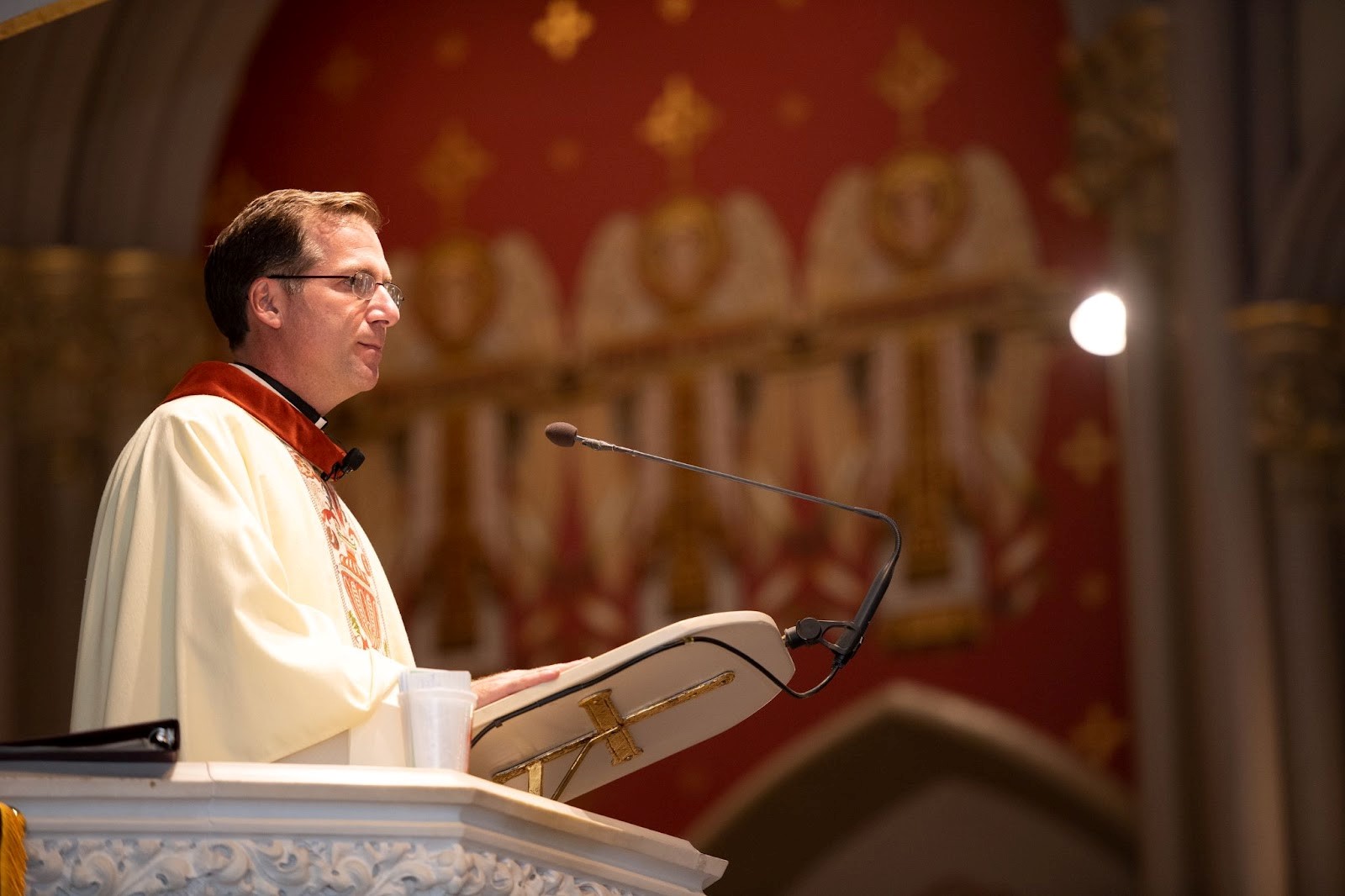
While Rev. Daffron has his work cut out for him, Loyola has already made great inroads in its HSI goal. According to university statistics, Latino first-year students made up 20.8 percent of Loyola’s student population in the fall of 2021. Of 3,369 undergraduate students, 19.65 percent were Hispanic. In addition, more than 50 percent of Loyola students self-identify as students of color, 30 percent of whom are first generation college graduates (the first in their families to go to college).
According to Ed Excelencia!, Loyola was listed as an emerging HSI in 2020-21 due to the fact that they are approaching the 25 percent mark needed to officially be an HSI. Thanks to Loyola’s 2020 Strategic Plan, Courage and Creativity, which set out to intensify recruitment and welcome Hispanic students, the university is on its way to becoming a full HSI.
Under Rev. Daffron’s interim leadership, this mission will be carried forth from his predecessor, former University President Tania Tetlow. He worked side by side with her to create a smooth transition after her four years as president of Loyola.
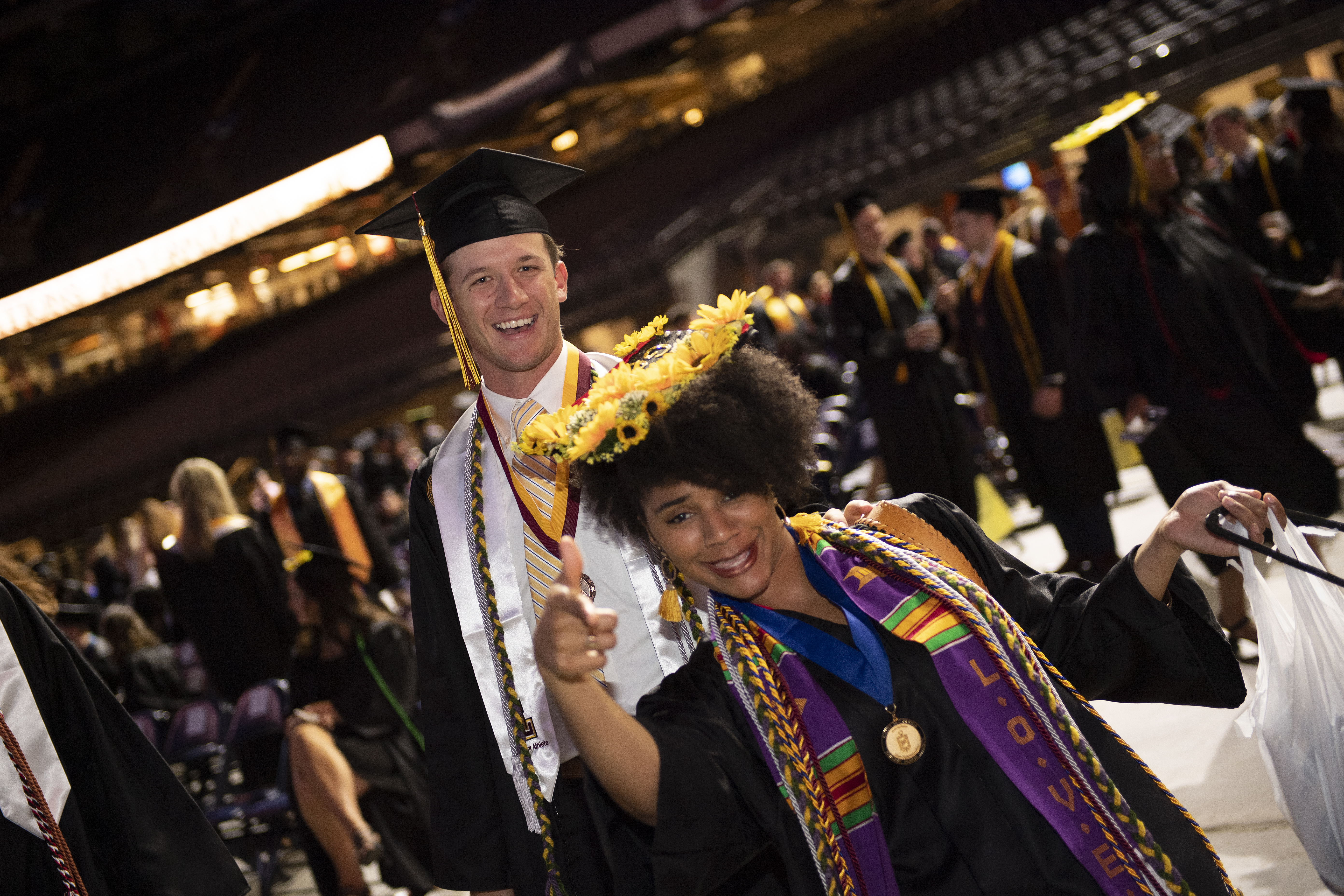
Prior to his current post, Rev. Daffron served as vice president for mission and identity at Loyola since July 2019. He was a critical member of Tetlow’s leadership team, beginning in 2019, and engaged the Loyola community in the Mission Priority Examen, a self-study process of the university. Rev. Daffron also played a key role in devising the university’s strategic plan, by advancing ideas for long term strategies that would strengthen Loyola’s reputation and financial position. In addition, he co-chaired a committee that authored an action plan to address future institutional challenges and opportunities.
The interim president came to Loyola University New Orleans after serving as Special Assistant to the President of Saint Louis University. Here he developed growth strategies, particularly in the health field, and a strategic plan for transformative education. Also, as Associate Provost for Strategic Planning and Academic Services at Loyola Chicago, he led a task force positioning the university for the future.
Throughout his career, Rev. Daffron has shown great leadership and vision, especially when it comes to building a community that inspires future change agents in society. He has long advocated for justice, diversity, equity, and inclusion, and has done so by fostering philanthropic investment so students of all backgrounds can afford a quality education. He has been responsible for raising over $5 million in grants to create support systems for low-income and first-generation students.
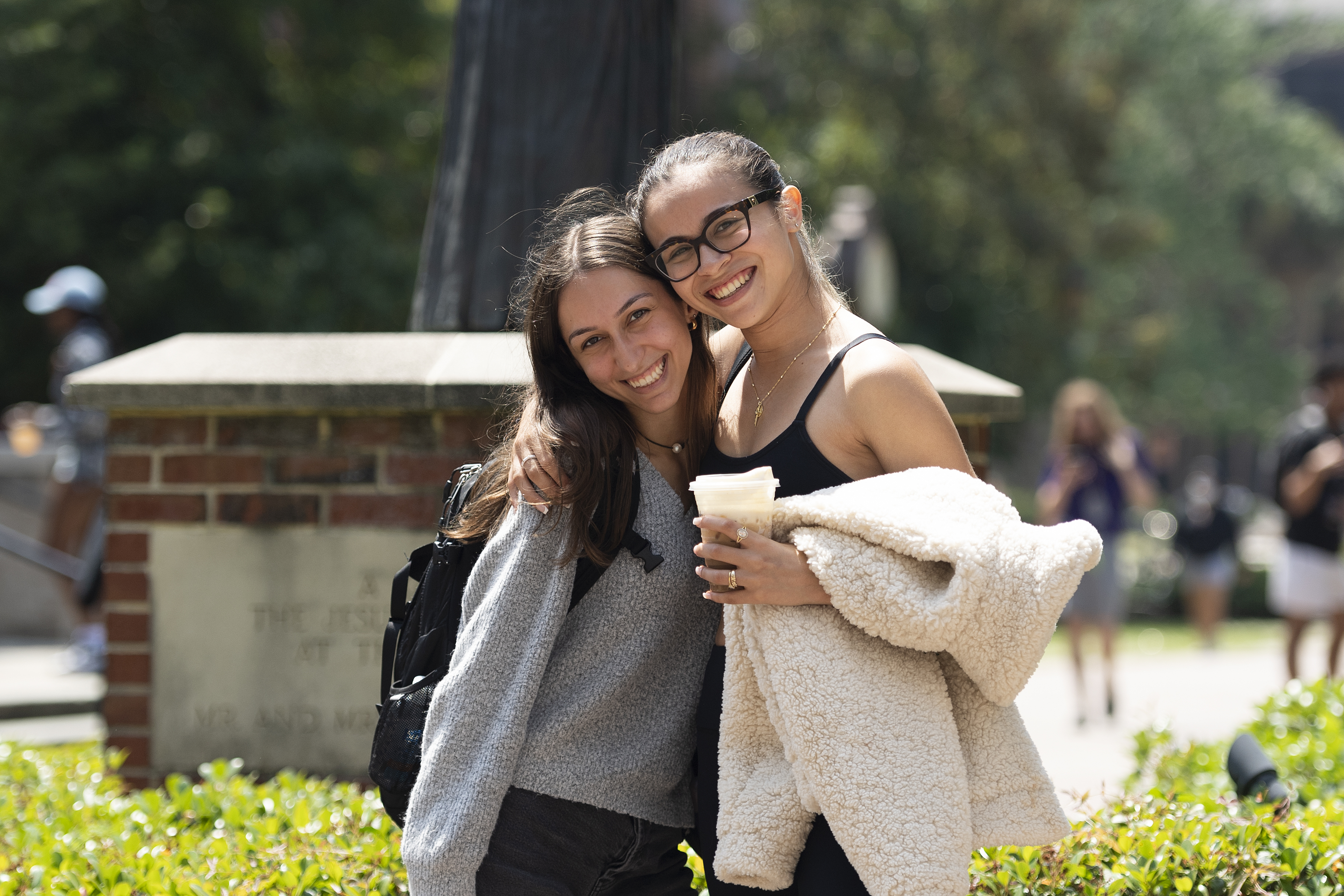
Although Rev. Daffron’s earlier years of education in a Catholic school provided little exposure to diversity, his childhood in Dallas, Texas, did. “I was socialized to value the beauty of Hispanic food, friendship, and fun,” he said. “My family was in the food business, so much of the workforce was Hispanic. Friends of my folks also adopted us into their households and exposed us to chicharrones and posadas.”
In addition, Rev. Daffron’s grandparents had him, his siblings, and his cousins all work in soup kitchens, collect cans for recycling, and help serve the poor. “My grandparents wanted to make sure my brothers and cousins grew up with a social awareness that not everyone had the resources we were privileged to have,” he said. “They wanted us to have a sense of the common good and responsibility to our local communities.”
When the interim president attended the small liberal arts school, Centenary College, in Louisiana, he studied business and economics, and was exposed to much more diversity. He also did his novitiate training at Saint Charles College in the same state. During this time, he spent 6 months in Tijuana, Mexico, as part of his field experience. Rev. Daffron helped provide medical assistance, food, clothing, and shelter in Casa de los Pobres. In addition, he crossed the border every day to San Diego, California, to gather food and clothing for those in need at Casa de los Pobres.
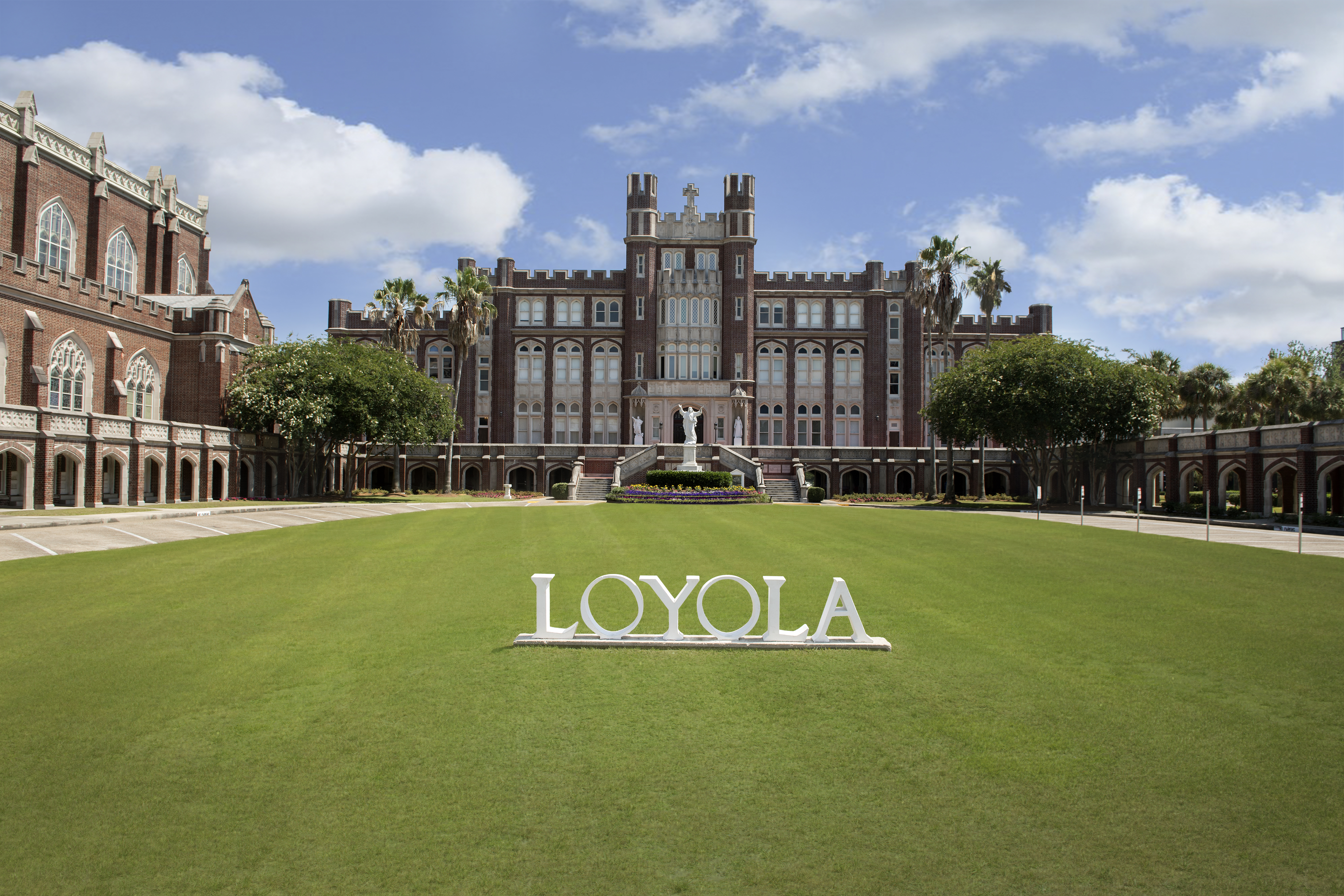
Rev. Daffron obtained his Master of Arts in Counseling from St. Louis University, a Master of Divinity from the Jesuit School of Theology in Berkeley, California, and his Ph.D. in higher education from Loyola University Chicago. During his studies, he was asked to reflect on how he could be of service in his life.
“In the Jesuit order we are asked to envision ourselves in the future, and I always envisioned myself working at a college or university because that was such a transformative time in my life,” he said.
With a passion for education, Rev. Daffron worked full time in academic services while obtaining his Ph.D. at Loyola Chicago. He became much more involved with Hispanic students, helping provide them and other students with work experiences while studying in order to address the cost barrier of higher education. “Employers paid their tuition and students also received mentoring through partners and organizations at their worksite,” explained the interim president.
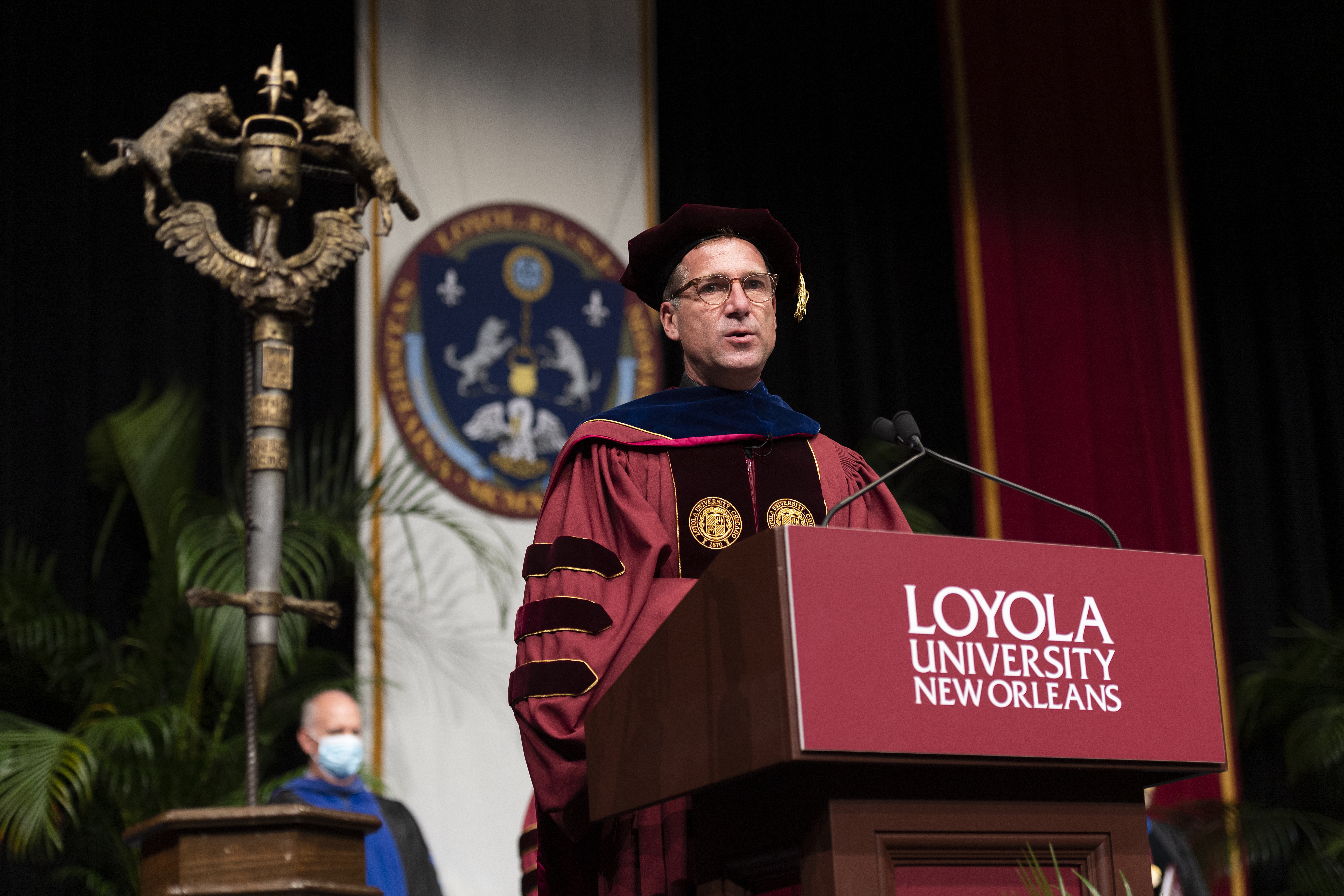
During this time, Rev. Daffron helped create a scholarship program that offered students academic enrichment, spiritual development, and a sense of community. “We saw completion rates take off during that time,” he said. “Prior to that, we were providing good access but were not doing so well with completion rates.”
Since his earlier years, Daffron has continued to work toward creating access and opportunities for underrepresented first-generation students. And now, as interim president, he will keep to and expand upon Loyola’s plan so it can one day become an HSI.
Already, the university has Hispanic students attending from as far away as Central America, Colombia, and Ecuador. In addition, faculty of color make up 22 percent of Loyola’s faculty (up from 17 percent just a few years ago) and Hispanics are among those represented in the school’s leadership: Vice President Uriel Quesada is a three-time National Book Award winner of Costa Rica. María Calzada, dean of the College of Arts and Sciences for the past 30-plus years, is from Panama. Harvey Werner, Director of Admissions, is half-Colombian.
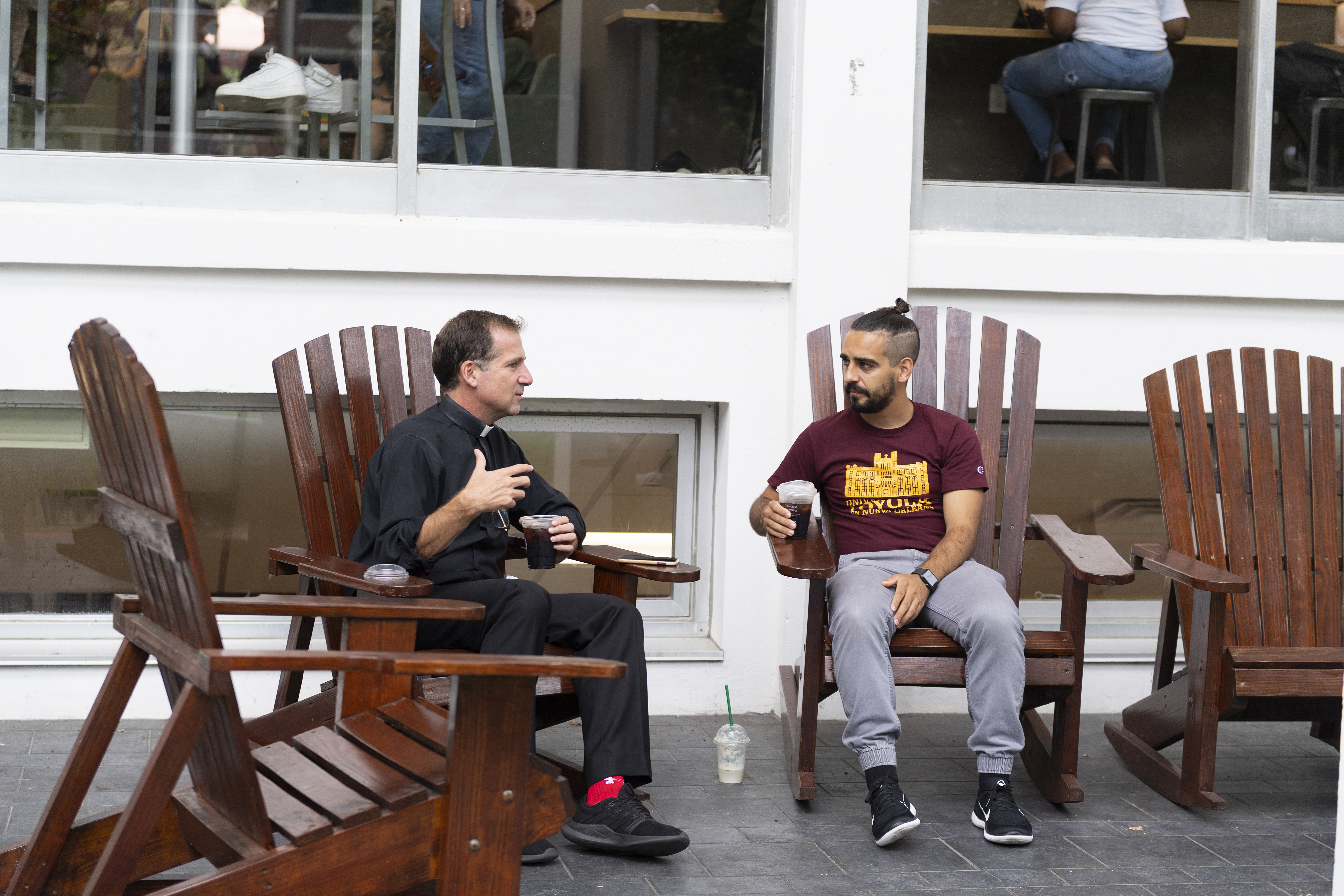
In addition, Loyola has test-blind admissions, which help those students who come from less affluent districts. The school´s Pan-American Life Student Success Center mirrors the diversity of the students it serves with 22 percent self-identifying as Hispanic.
Other successful steps taken toward becoming an HSI have included the following: The school has all but eliminated retention gaps of race and class in the past two years; it has created a J-term focused on diversity, equity, inclusion and social justice, offering this in Mexico City and Costa Rica; the admissions and communication departments have hired native Spanish-speakers to help parents of prospective applicants; they’ve created a strategic plan to help attract and hire diverse faculty and have increased early intervention support; and the school offers individualized student success coaching, targeted programs for first-generation students, and a Center for Latin American Studies.
“We have the right talent to continue moving the needle forward with our Hispanic population. We can learn a lot from this community. I love how they value family and community,” said Daffron. “We are also committed to diversity across all attributes, including socioeconomic, religious, racial, and different groups.”
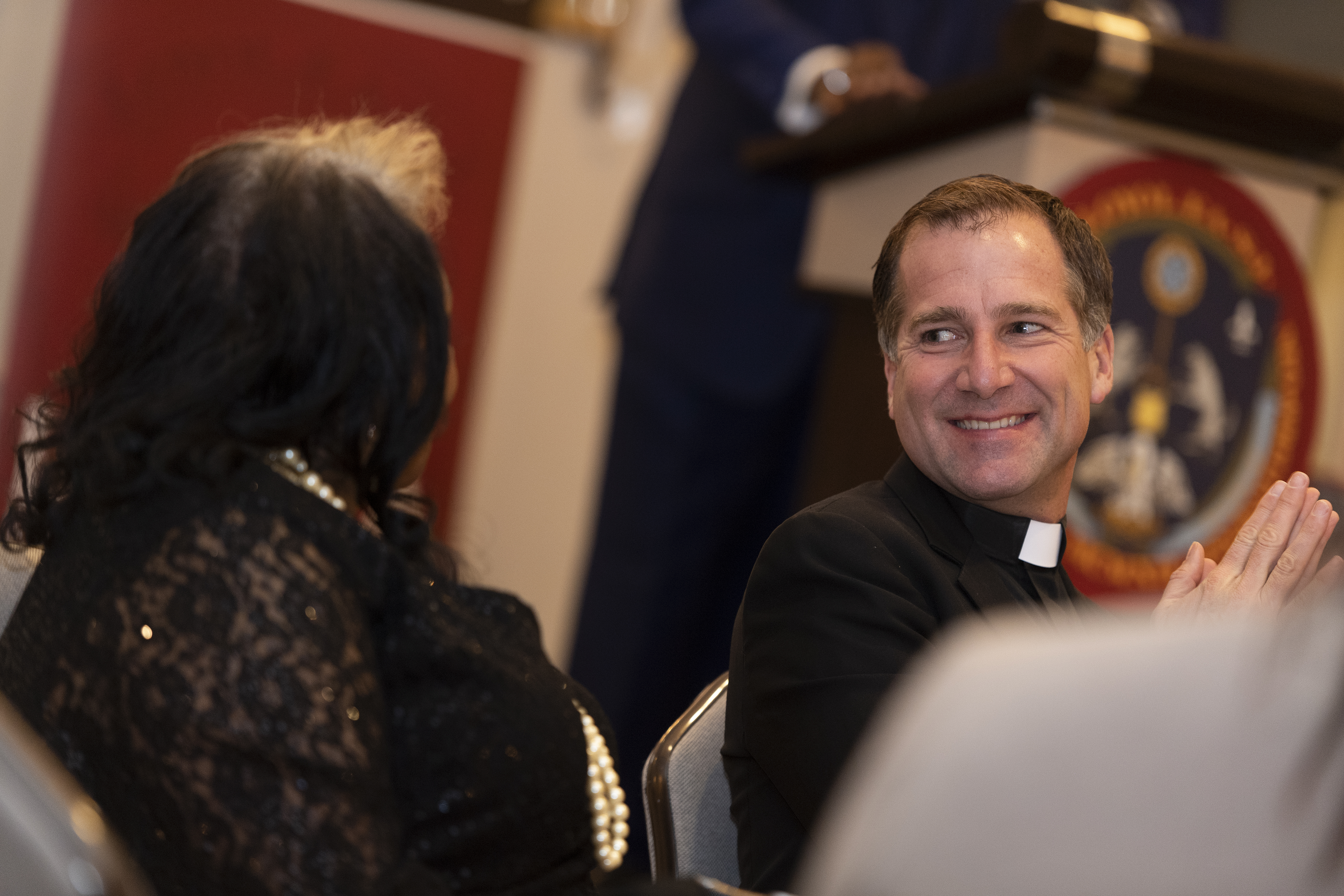
Daffron’s comment comes as no surprise since his main mission as interim president is to continue developing a rich learning environment that honors Jesuit values. For him, that means making sure any and all people feel included and welcome on campus, so much so that they achieve success in school and far beyond.
“This is a lifelong project,” concluded Daffron. “We are building a Loyola community beyond the educational experience.”